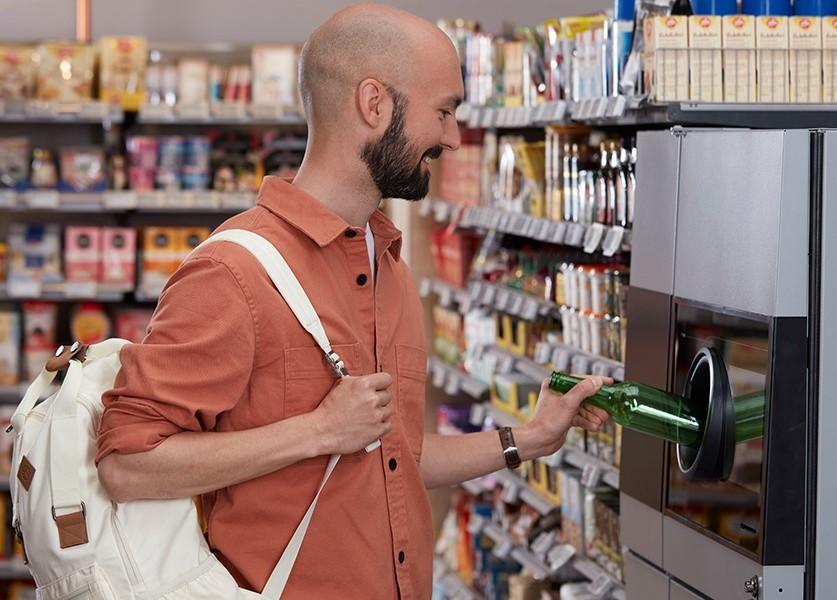Globally nearly 1.4 trillion beverage containers are used per year. Plastic, aluminum, or glass bottles and cans have become an essential part of our daily lives. At lunch, dinner, during and after sports, and almost every occasion, we drink something which comes in a can or bottle.
You can imagine nearly 1.4 trillion cans or bottles are potentially a lot of waste. However, TOMRA doesn’t see this as a waste – they see it as a possibility to recycle and reuse.
“We, at TOMRA, have a mission of being the leader in the resource revolution by creating sensor-based solutions for optimal resource productivity,” says Tove Andersen, CEO at TOMRA. Tove continues, “Circular economy, an economy based on eliminating waste and pollution, circulating products and materials, and the regeneration of nature – has been at the heart of TOMRA since it was established in 1972.”
TOMRA is the world leader in reverse vending machine solutions. The company has approximately 80,000 installed machines in over 60 markets. Every year TOMRA facilitates the collection of more than 40 billion empty cans and bottles and provides retailers and other customers with an effective and efficient way of collecting, sorting, and processing these containers.
“Our material recovery business includes the pick-up, transportation, and processing of used beverage containers,” explains Tove at TOMRA. “Each year, TOMRA Collection products and services contribute to about 4 million tons in avoided CO2 emissions”.
In addition to savings in CO2 emission, we can avoid plastic containers decomposing into microplastics, which is currently a huge problem to aquatic and marine ecosystems, and land resources from the mining industry when the need of virgin aluminum and silica is reduced
TOMRA is the technology leader, and Scanfil is their trusted manufacturing partner
TOMRA and Scanfil have been working together for over a decade. Scanfil is the preferred manufacturing partner in reverse vending machines.
“Tomra and Scanfil entered into a strategic partnership in 2005 and Scanfil has continuously developed the manufacturing and supply chain services together with Tomra in order to meet their high market demands for availability and flexibility”, says Sales Director Lars Skanke at Scanfil.
Scanfil is proud of being TOMRA’s manufacturing partner and helping them and the world recycle and recuse materials to save natural resources and reduce CO2 emissions.
Reimagining recycling – TOMRA is in the frontline of the circular economy
26.9.2022
Energy & CleantechGlobally nearly 1.4 trillion beverage containers are used per year. Plastic, aluminum, or glass bottles and cans have become an essential part of our daily lives. At lunch, dinner, during and after sports, and on almost every occasion, we drink something which comes in a can or bottle. You can imagine nearly 1.4 trillion cans or bottles are potentially a lot of waste. However, TOMRA doesn’t see this as a waste – they see it as a possibility to recycle and reuse.
